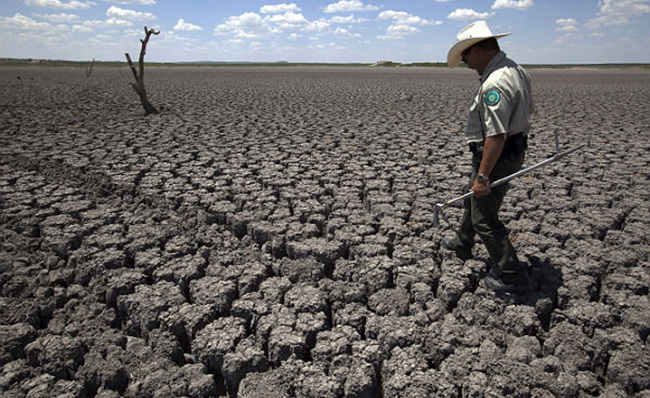 Wednesday 11 October 2017 1:46pm
Wednesday 11 October 2017 1:46pm
Researchers show that extreme weather conditions are driving migration patterns. Image: supplied.
Climate change is an important driving force of human migration.
For the first time, a University of Otago researcher has shown that not only are the effects of climate change influencing people's decision to migrate, it is actually a more important driver than income and political freedom at the origin country.
Otago Business School economics researcher Dr Dennis Wesselbaum has been analysing international migration figures in a joint project with Victoria University of Wellington Master's student Amelia Aburn. Traditionally, research looking into the drivers of migration focuses on economic differences, for example in wages, and the costs of migration. It has only recently included climatic factors.
The two researchers looked at migration flows between 16 OECD destination and 198 origin countries, including New Zealand, across 35 years. This is the first time data of various potential driving forces of migration including climatic factors has been studied over a long time period.
The idea is to offer a joint analysis of various driving forces of migration, capturing long-term effects and year-to-year variations.
Dr Wesselbaum is particularly interested in the effects of temperature and weather-related disasters, and how migration responds over time to changes in its driving forces. Including temperatures and disasters is important, as research has shown that people understand the effects of climate change through changes in local weather patterns rather than from changes in temperature.
“This gives a valuable insight into whether climate change does influence immigration, and by how much; looking at these figures over a long time period is the key to understanding the effects of climate change,” he says.
Dr Wesselbaum amassed data from each country on significant weather events and temperatures and data on immigration from 1980 to 2014, then modelled immigration flows over that time to determine patterns and identify significant factors.
That work showed events like storms, floods, heatwaves and droughts have different effects on migration. In particular, temperature rise is having a major influence in immigration decisions – intuitively, people are moving away from the negative effects of climate change. He has also shown that single or unforeseen events, such as storms, can have a long-lasting impact on a country's immigration figure. Most interestingly, after an increase in temperatures, migration decreases for roughly four years before it increases for about 10 years.
This presents an important but tight window of opportunity for policy makers, as the speed of the policy response is crucial in limiting the effects of shocks from such events in origin countries, and therefore the effects on migration.
Dr Wesselbaum says the research makes clear that global migration patterns are increasingly being driven by climate change, and this raises crucial issues for policy makers.
“It is clear climate migration is a global issue that needs cross-country discussion. Both developed and at-risk countries need more planning and policy to prepare for what is likely to be a growing trend of people wanting to move from countries experiencing climate change.
“Climate refugees have yet to be recognised officially by international law and included in the UN refugee convention, but the predicted two to three degrees Celsius rise in global temperature will see climate refugees rather sooner than later.
“This raises the question for New Zealand of how we, as an individual country, can prepare for the impact on our population as well as our land.”
Their paper is online at:
http://www.otago.ac.nz/economics/otago642786.pdf
For more information, please contact:
Dr Dennis Wesselbaum
Department of Economics
Otago Business School, University of Otago
Email: dennis.wesselbaum@otago.ac.nz
A list of Otago experts available for media comment is available elsewhere on this website.
Electronic addresses (including email accounts, instant messaging services, or telephone accounts) published on this page are for the sole purpose of contact with the individuals concerned, in their capacity as officers, employees or students of the University of Otago, or their respective organisation. Publication of any such electronic address is not to be taken as consent to receive unsolicited commercial electronic messages by the address holder.








